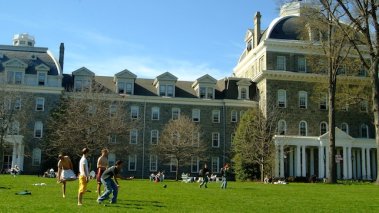Table of Contents
Swarthmore Admits Treating Student Accused of Sexual Assault Unfairly, Settles Lawsuit

As colleges and universities face ever-growing pressure to show that they take the issue of sexual assault seriously, a number of accused students have found themselves steamrolled by unfair and frequently incompetently-run, ends-driven disciplinary proceedings that disregard the procedural protections owed to anyone facing such serious allegations. Over the past year, those students have increasingly taken to the courthouse steps in order to vindicate their rights and expose the flaws in the disciplinary processes they faced.
One particularly troubling trend, which often serves as a harbinger of due process violations to come, is universities’ re-opening of closed disciplinary cases for “re-evaluation,” likely to appease the U.S. Department of Education’s Office for Civil Rights (OCR) in the face of a federal Title IX investigation into the institution’s policies and practices. That’s exactly what happened to the pseudonymous John Doe, a student at Swarthmore College who filed a lawsuit against the college earlier this year.
Doe’s lawsuit alleged that a disciplinary investigation against him—previously closed without any charges—was re-opened after an unrelated Title IX complaint brought significant negative publicity about the college’s handling of sexual misconduct. Unsurprisingly, given the current climate, this time Swarthmore charged Doe with numerous disciplinary violations. Doe’s complaint alleged numerous failures by the college to adhere to its own policies and provide him a fair hearing, including
- modifying the charges against him two days prior to his hearing,
- failure to give him access to evidence,
- providing as his advisor the very person who selected the charges to be brought against him, and
- allowing the Title IX coordinator to support and testify on behalf of the complainant after telling Doe that the Title IX coordinator could not be his supporter because it would be “inappropriate.”
For a more complete rundown of Swarthmore’s due process failures, a pattern by no means limited only to Swarthmore, check out pages 28–36 of the complaint.
Last week, while Swarthmore’s motion to dismiss was pending in the U.S. District Court for the Eastern District of Pennsylvania (where two judges have recently refused to dismiss lawsuits by accused students against their universities), the college and Doe reached a settlement agreement—saving the college the potential embarrassment of having whatever evidence there may be of its unfair and indefensible behavior trotted out in open court for all to see.
While most details of the settlement are confidential, the joint motion for dismissal is telling:
3. After the Disciplinary Hearing and after consideration of John Doe’s original appeal, additional information became available which both Parties believe raises questions about the impartiality of the College Judiciary Committee Panel that heard John’s case.
4. On the basis of this new information, John has requested that the College vacate the Panel’s findings and sanction. The College agrees that the new information raises sufficient questions about the fairness of the hearing to warrant vacating the Panel’s finding and sanction.
Of course, it’s all well and good that Swarthmore has finally admitted that Doe was treated so unfairly that his campus conviction must be overturned. But the fact that it took a federal lawsuit and the possibility of public embarrassment and a monetary judgment to engage in this meager self-reckoning is simply inexcusable.
If John Doe lacked the resources to file this lawsuit (as many students undoubtedly do), would he have ever received this acknowledgement? Or would Swarthmore have been free to loudly (and falsely) proclaim to the world that it takes both sexual misconduct and its students’ rights seriously? It shouldn’t take a lawsuit for colleges and universities to treat their students fairly, and the fact that it did in yet another case leads back to the question that people on all sides of the debate seem to be asking these days: Why are colleges and universities adjudicating these cases in the first place?
Recent Articles
FIRE’s award-winning Newsdesk covers the free speech news you need to stay informed.

Texas tramples First Amendment rights with police crackdown of pro-Palestinian protests

Here’s what students need to know about protesting on campus right now

Kansas takes a stand for intellectual freedom
